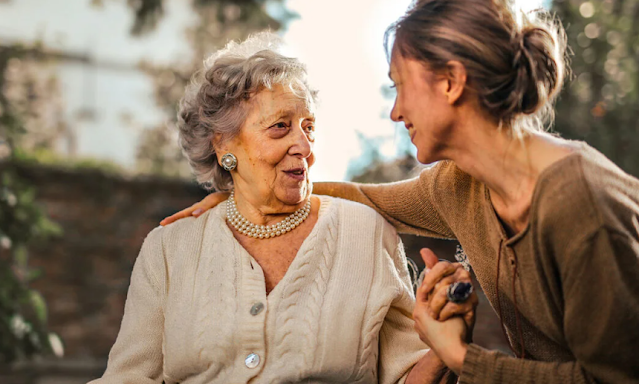The Benefits of Physiotherapy for Seniors: Enhancing Mobility and Quality of Life
As we age, maintaining physical mobility and overall well-being becomes increasingly important. Physiotherapy, a specialized form of therapy, offers a multitude of benefits for seniors, helping to improve mobility, manage pain, and enhance overall quality of life. With a tailored approach that addresses specific age-related challenges, physiotherapy has become an invaluable tool in promoting independence and well-being among the elderly. In this article, we'll explore the various ways in which physiotherapy for seniors can benefit seniors and contribute to their overall health and happiness.
.png)
The Importance of Physiotherapy for Senior Citizens:
1. Enhancing Mobility: With age, mobility can become a significant challenge. Physiotherapy focuses on improving muscle strength, joint flexibility, and overall mobility, allowing seniors to perform daily activities more comfortably and independently.
2. Managing Pain: Chronic pain is a common issue among seniors. Physiotherapy employs various techniques, such as manual therapy and targeted exercises, to alleviate pain and improve joint function, enabling seniors to enjoy a better quality of life.
3. Preventing Falls: Falls are a leading cause of injury among the elderly. Physiotherapists work with seniors to improve balance, coordination, and muscle strength, reducing the risk of falls and associated injuries.
4. Rehabilitation After Surgery: For seniors recovering from surgery, physiotherapy plays a crucial role in the rehabilitation process. Physiotherapists design personalized exercise programs to help seniors regain strength, flexibility, and range of motion, ensuring a smooth recovery and a quicker return to daily activities.
5. Improving Overall Well-being: Beyond physical benefits, physiotherapy also contributes to the mental and emotional well-being of seniors. Through personalized care and one-on-one sessions, physiotherapists provide emotional support, encouragement, and motivation, fostering a positive outlook and an improved sense of well-being.
The Role of Tailored Physiotherapy Programs:
1. Customized Exercise Regimens: Physiotherapists develop individualized exercise plans that cater to the specific needs and abilities of each senior, ensuring safe and effective progress towards improved mobility and strength.
2. Manual Therapy Techniques: Hands-on techniques such as massage, joint mobilization, and manipulation are used to relieve pain, reduce stiffness, and improve flexibility, allowing seniors to move more freely and comfortably.
3. Education and Support: Physiotherapists educate seniors and their caregivers on proper body mechanics, injury prevention, and strategies for managing chronic conditions, empowering them to take an active role in their own well-being.
4. Adaptive Equipment and Assistive Devices: Physiotherapists recommend and provide guidance on the use of assistive devices and adaptive equipment that can aid seniors in maintaining their independence and performing daily activities with greater ease and safety.
Conclusion:
Physiotherapy plays a crucial role in enhancing the quality of life for seniors, offering a holistic approach that addresses their unique physical and emotional needs. By improving mobility, managing pain, and preventing falls, physiotherapy empowers seniors to lead more active, independent, and fulfilling lives. With personalized care and targeted interventions, physiotherapists play a significant role in promoting the health and well-being of our senior population, fostering a sense of vitality and confidence that transcends age.


Comments
Post a Comment